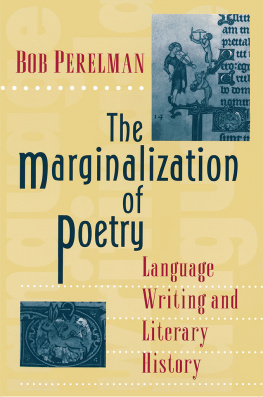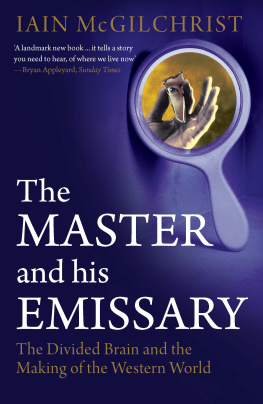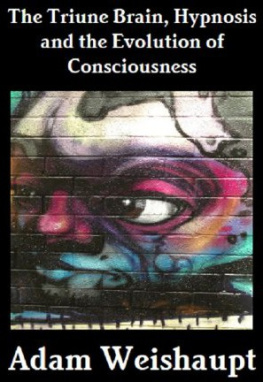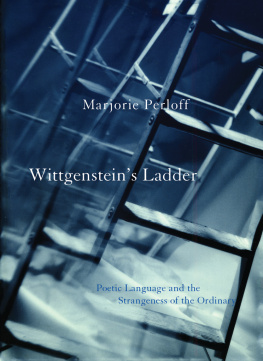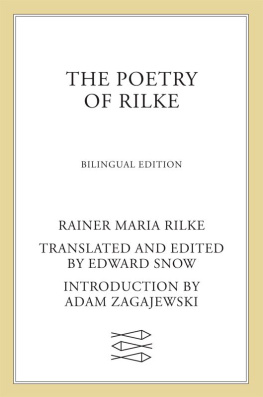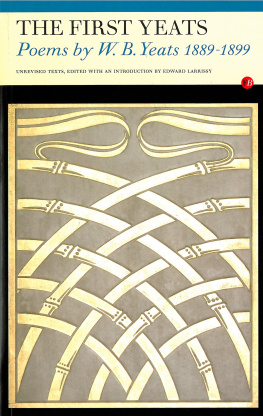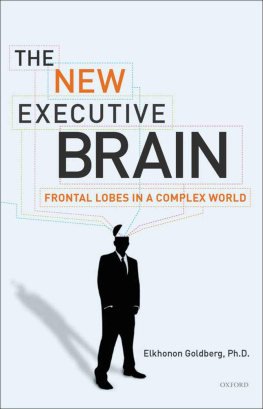Title page
In Their Right Minds
The Lives and Shared Practices of Poetic Geniuses
Carole Brooks Platt
imprint-academic.com
Publisher information
2015 digital version by Andrews UK Limited
www.andrewsuk.com
Copyright Carole Brooks Platt, 2015
The moral rights of the authors have been asserted.
No part of this publication may be reproduced in any form without permission, except for the quotation of brief passages in criticism and discussion.
Originally published in the UK by
Imprint Academic, PO Box 200, Exeter EX5 5YX, UK
Originally distributed in the USA by
Ingram Book Company,
One Ingram Blvd., La Vergne, TN 37086, USA
Cover artwork by Jay Vogelsong
Dedication
For Mother
Acknowledgments
I have greatly benefitted from the knowledge of professors, colleagues, friends and family who have shared their knowledge, and pointed me in directions I might not have discovered on my own. Many thanks to Michle Sarde and Patrick Brady, who first introduced me to literary critical methods, and my sister, Janice, for the reference to Robert Graves, whose matriarchal mythopoeic theme became the underpinning of my doctoral dissertation, and recurred again in this study of poets.
I first became aware of hemispheric differences that could explain the voices and visions of poets and prophets in Julian Jaynes Origin of Consciousness in the Breakdown of the Bicameral Mind . Marcel Kuijsten, director of the Julian Jaynes Society, suggested I attend the Toward a Science of Consciousness conference and present my research there. This venue was an invaluable entre into a world of minds intent on discovering the underpinnings of consciousness, the effects of altered states, and the possibilities of precognition and non-local awareness. Special thanks to Dr Allan Schore, who introduced me to the mothers importance in establishing a secure sense of self, and provided me with a steady stream of references and articles confirming the effect of maternal attachment on the early developing brain.
My chapters weave together, amplify and update materials I have already published in Gnosis , Journal of Consciousness Studies , Jaynesian , Clios Psyche and Plath Profiles , to whom I am grateful for publishing my research. Thanks as well to the many theorists whose lectures and conferences at the Jung Centers of Houston and New York who have inspired me and taught me so much.
Specialists who read my drafts and/or offered invaluable suggestions for further readings or factual changes include Julie Kane, James Hollis, Judith Moffett, Timothy Materer, Dianne Hunter, Jeffrey Kripal, Wouter Hanegraaff and Lois Oppenheim. Many thanks to the hundreds of neuroscientists whose studies have helped clarify the functional differences between the left and right hemispheres and the effects of atypical lateralization on the brain.
Thanks to my dear friend whose personal experience jettisoned me on a path to understanding how atypical minds and traumatic circumstances can change the way the brain works, with enormous creative potential.
Finally, I am deeply indebted to my husband, Charles, and my sons, Colin and Jonathan, who have supported me throughout this twenty-year journey, pushing me to complete the work and cross the finish line.
Introduction
My interest in the voices and visions of poets and prophets was precipitated by a dear friends claim to channel angels after her mother died. In the face of a real human being, whose friendship I treasured, not an anonymous participant in a scientific study, how could I not relentlessly pursue the reason for her puzzling transformation?
The quest began with scientific and mystical readings, but soon branched out into a study of the lives of great poets, whose creative productions flowed from techniques like automatic writing, sances or the Ouija board. Most of them required collaborating partners to help contact discarnate entities who spoke. How could these intelligent people believe what they were doing was real? How did it work?
In 1976, Julian Jaynes proposed that the language of poetry, with its different tenor and tone and use of unusual metaphors, as well as prophecy, with claims predicting the future, originated in the right side of the brain. Poetry was the language of the gods. Neuroscientific evidence from the twenty-first century, especially Julie Kanes use of organic brain studies along with her own knowledge as a scholar/poet herself, proved that poetry is right-hemispheric language. Studies on individual aspects of poetry, such as use of vowels versus consonants, rhyming, willed or unwilled production, show how hemispheric differences do exist. Psychological investigations connecting mood disorders and creativity still prevail, but rarely make the enhanced right-hemispheric connection.
It is well known that left-hemispheric dominance for language is the norm. Hoping to avoid distortion in their results, most fMRI studies on the brain only include right-handers, neglecting left- or mixed-handers. But other researchers in lateralization studies have found that reduced cerebral asymmetry, with right, bilateral or even synchronous activation of the hemispheres, can produce not only poetry, but also a sense of presence and belief in the paranormal, with or without mental imbalance. An atypically enhanced right hemisphere, then, whether attained through genetic predisposition, left-hemispheric damage, epilepsy, autism, childhood or later traumas can create hypersensitivities along with special skills. Dissociative others may arise unbidden or be coaxed out through occult practices.
The poets included in this study are Blake, Keats, Hugo, Rilke, Yeats, Merrill, Plath and Hughes. Blake took divine dictation, as did Rilke at times. Keats, the chameleon poet, merged, and is included in this study because of a dream invitation that responded to my concerns for my friend. All of the others had collaborating partners, one of whom was the transcriber, while both were needed to allow the entities to speak. Based on nearly twenty years of scientific and literary research, this book enters the atypical minds of poetic geniuses - gauged by visible signs and invisible indications in their lives - attempting to make sense of poetic creativity and paranormal claims.
What could still be perceived as direct dictation in the eighteenth century, by the nineteenth required techniques and collaboration with supportive others. My analysis makes clear that personal as well as historical tragedies could constellate to produce a psychological environment conducive to these dissociative experiences, while providing answers to deep existential issues.
The mythopoeic imagination seems to lie in unconscious processes, ready to come to the fore when the stresses of life become overwhelming. Are the voices real? Whether heard or spelled out by dissociative means, they are sculpted from personal and collective raw materials, speaking to the needs of the moment.
This subject is vast, but really encompasses one basic phenomenon: the astonishing ability of the human mind to shape its chaotic electrochemical underpinnings into creative solutions for survival. The teeming, energetic, unconscious undergrowth can be harnessed, bringing forth form which can guide, instruct, warn and give meaning to battered souls or to whole communities and nations.
Not everyone is capable of hearing the voices and giving them expression. Poets, artists, mystics and madmen, whose minds are organized in a different way from others, can break through the barrier of everyday perception to get glimpses of immaterial truth or beauty and give it form. As a Tibetan Buddhist monk once said to me when I asked him about my friends experience: There is a place where created and real meet. I found that answer consoling, but the rest relied on diligent research and a sympathetic heart.
Next page

